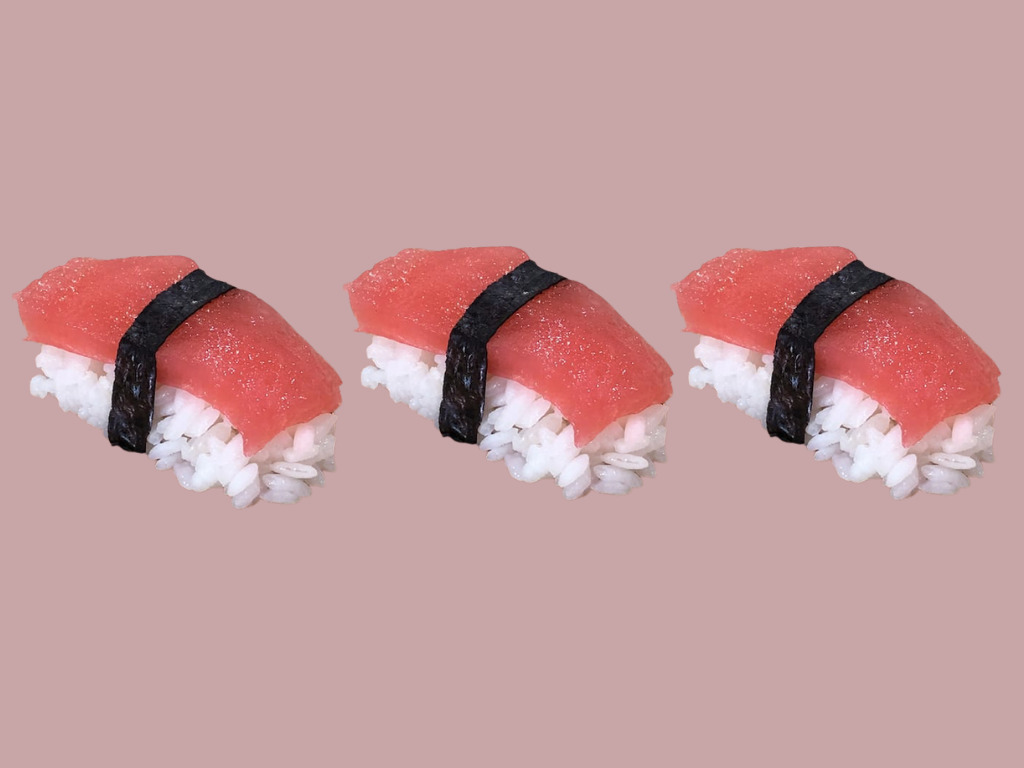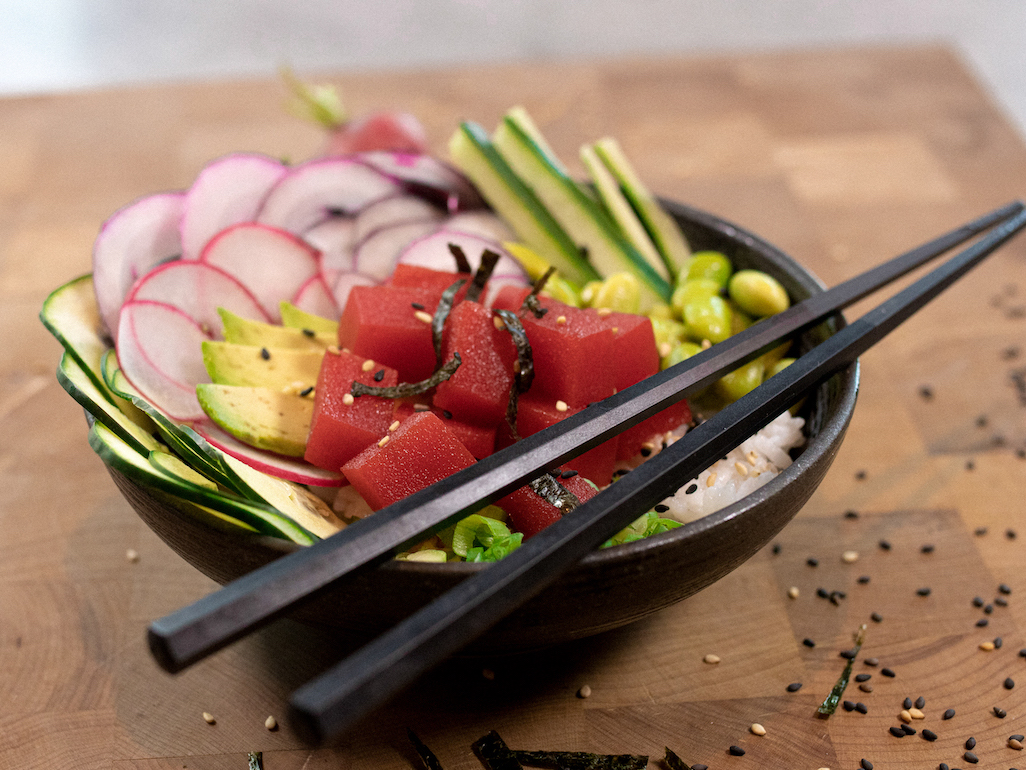3 Mins Read
Californian startup Impact Food has announced the soft launch of its new plant-based tuna that claims to capture the taste and texture of real whole-cut tuna found in sushi and poké. The young company has used a biochemical approach to mimicking conventional raw fish. The result, according to the founders, is authentically flakey.
Impact Food focuses on plant-based seafood alternatives. It hopes to create a diverse range of products that will provide an alternative to harmful overfishing. Tuna is a key fish to focus on, given that the wild population of the Bluefin species used in most sushi preparations is severely at risk of extinction- only 3% are left.

Taste, texture and benefits
Founders Adrian Miranda, Kelly Pan, and Stephanie Claudino Daffara brought a wealth of different skillsets to the table, allowing for a multidisciplinary approach to plant-based tuna development. Molecular cell biology came together with other specialisms to create a proprietary platform that analysed the constituent parts of conventional fish, ready for replication. The process is ongoing.
“Many of the plant-based seafood products in the market are still really lacking in terms of nutritional profile, and while ours is not yet exactly the same as conventional tuna, we’re getting really close to it,” Pan told FoodNavigator-USA.
The main stumbling block is protein content. The Impact Food offering cannot yet match the levels found in real fish, but the company says this must be weighed against the lack of contaminants frequently found in food fish. While it tweaks the protein level, Impact Food has remained geared towards a realistic taste, which is, it claims, why people buy whole-cut tuna.
Foodservice first, retail later
Despite not being ready to launch yet, Impact Food is securing restaurant and foodservice partnerships in the Bay Area. The idea is to use these channels to gauge receptions. “Through those partnerships, we want to get feedback from actual consumers to see what they think about the products and how it performs in the market,” Pan said. “From there, we plan to expand through food service to corporate accounts and afterwards, retail channels where our product can be sold in the freezer aisle.”
Once tuna has been successfully scaled, Impact plans to add additional seafood products to their range. Crab, which was the company’s first prototype, will be revisited. And salmon is on the menu, too.
The company is working on its first funding round, expected to close this month, which will help with further R&D and hiring.

The perfect catch
Tuna has been identified as an emerging trend within the plant-based sector. Big names and new startups alike are gunning to secure market share, though most have focused on flakes, not whole cuts. Zeroing in on raw plant-based analogues that can stand up to sashimi preparation and ceviche seasoning is a challenge that only a few are rising to currently. That being said, plant-based seafood as a whole is expected to garner a larger market share from traditional beef and chicken alternatives this year. This means new companies could emerge quickly.
Driven by consumer demand and concerns for aquatic life, Impact Food is not alone in its mission to create a viable whole-cut tuna alternative. Fellow Californian start-up Current Foods is making moves as well. They have just announced a direct-to-consumer sales launch that will be operational imminently. The move will make its products, previously only available via restaurants and very select in-store locations, deliverable across the U.S.
Lead photo by Impact Food.




